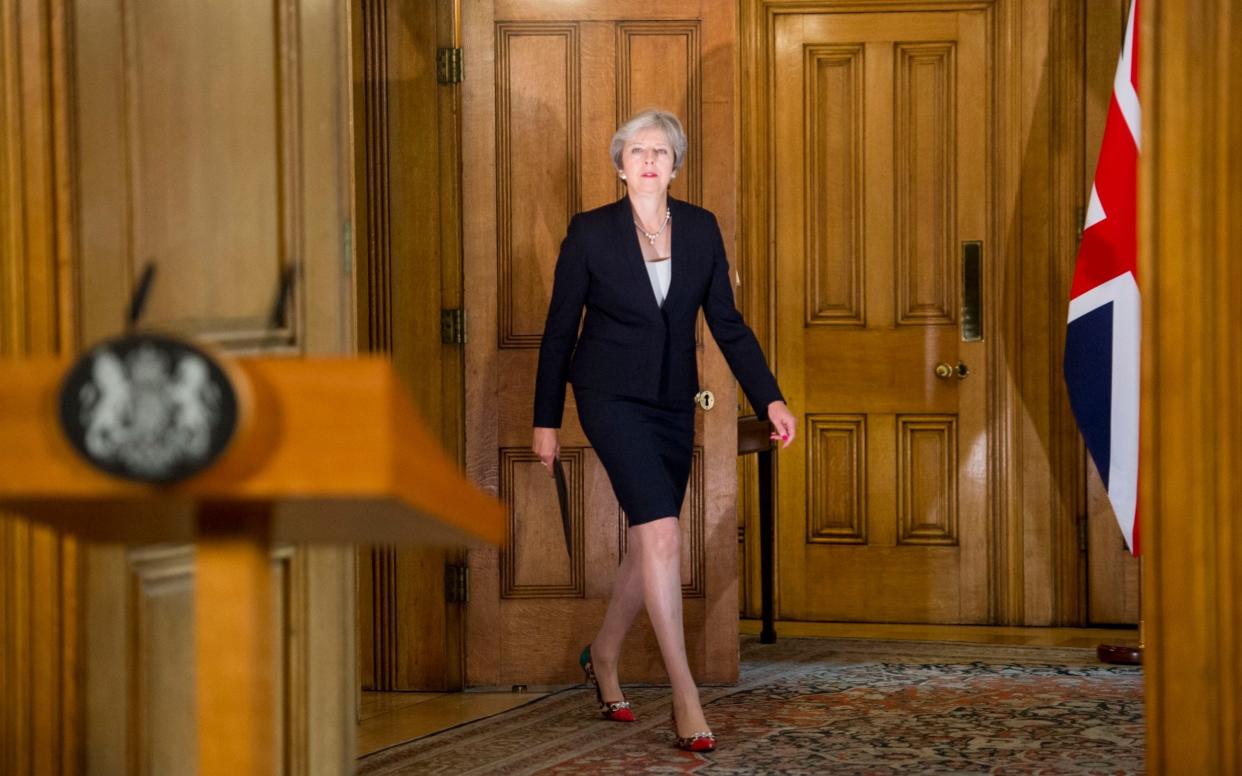Europe gives Theresa May the cold shoulder after she comes out fighting for Chequers

After the prickly exchanges of the Salzburg summit, the European Union kept its distance from the UK Brexit debate on Friday, even as diplomats warned there would be no budging over the question of the Irish border.
“We have to be careful, like two loving hedgehogs,” said Jean-Claude Juncker, the European Commission president. “When two hedgehogs hug each other, you have to be careful that there will be no scratches.”
The remarks came as office of the French president, Emmanuel Macron, issued a curt “no comment” after Theresa May issued a statement reiterating her refusal to allow customs checks in the Irish Sea in order to preserve the invisible border in Northern Ireland.
“We now need to hear from the EU what the real issues are and what their alternative is so that we can discuss them. Until we do, we cannot make progress,” she said.
The statement left both sides at an “impasse”, with officials on both sides confirming that there will be no hasty efforts to clear the air, or emergency meetings over the weekend.
Negotiations were continuing yesterday over a new dates for talks, which are anticipated for next week, but neither side said they were expecting major movements until after the Conservative Party conference on September 30.
Leo Varadkar, the Irish Taoiseach, said he still believed a deal was possible, but warned of trouble ahead. "I think we're entering into a rocky patch over the next couple of weeks but I'm determined to keep working and to secure that deal before the end of the year,” he said.

Even so, EU sources said that there was no stepping back from Donald Tusk’s demand that Mrs May must sign up to an Irish ‘backstop’ in order to secure a withdrawal agreement and open the door to trade talks after March 29 next year.
Michel Barnier, in his presentation to EU leaders in Salzburg, continued to push back against Mrs May’s contention that a customs border in the Irish Sea “would mean breaking up our country”, telling leader that there were ways to make such checks less intrusive.
These include allowing customs and VAT declaration to be made online, doing regulatory compliance checks in the marketplace rather than at the border and arguing that animal checks would simply increase in volume and intensity but on established principles.
“Our thinking going forward is to continue to ‘de-dramatise’ the backstop, and discuss the text of backstop with UK to see what is really so threatening for its constitutional integrity, and then find ways in the future trade declaration to to make sure it isn’t activated,” an EU source said.
But behind the scenes there is mounting exasperation with Mrs May’s dug-in approach to the Irish border question, with EU diplomats accusing her of unnecessarily using the Ireland issue as a “trojan horse” to use the unique circumstances of Ireland to win special access to the single market.
“She needs to find a way to get down off that high horse, or we will not have a deal,” said a senior EU diplomat who accused Britain of dismissing Mr Barnier’s de-dramatised border without even looking at it. “There is no threat to the constitution of the UK, or to its territorial integrity.”
Ireland is among EU member states asking for the British to put forward their own text of the Irish backstop as a means of kick-starting negotiations. “At least then we can get two texts on the table and start working towards each other,” said a source close to the negotiations.
British officials warned against expecting a dramatic shift or a new text, but said the UK would table new proposals on the regulatory aspects of the Irish border after Brexit which had not been addressed in the UK’s proposals for an all-UK customs arrangement for the backstop.
The EU has emphatically ruled out such an arrangement on the basis that it would amount to “cherry-picking”. As such, the two sides remain deadlocked.

 Yahoo News
Yahoo News 
